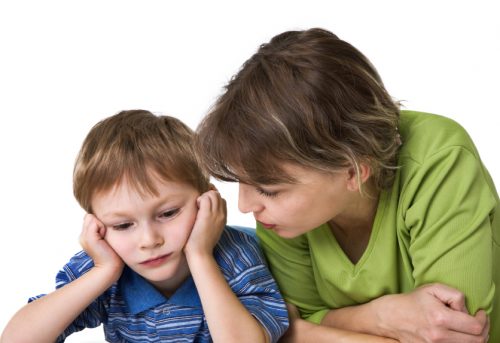Coping with Pet Loss in a Family
 The loss of a beloved family pet is probably the most difficult aspect of pet ownership. This is especially true when there are children in the home. Often, the loss of a pet is the first experience that young children will have with death and grieving, and may be especially difficult to understand. .
The loss of a beloved family pet is probably the most difficult aspect of pet ownership. This is especially true when there are children in the home. Often, the loss of a pet is the first experience that young children will have with death and grieving, and may be especially difficult to understand. .
Everyone in the family will react to the loss differently, and it is important to understand that age, life experience, and personality all play a part in how a person handles grief.
As parents, it is important to understand how children handle grief, so that you can help them through this difficult time. Here are some insights when it comes to coping with pet loss in a family.
Preschool
Preschool-age children typically will not understand death as we do, but it is important to help them come to terms with the fact that their pet is gone and not coming back, and that the child is not to blame for the pet’s passing.
For young children, maintaining routines is often the best therapy, as is allowing them to cry without fear of shame.
Elementary School
Children mature a great deal between kindergarten and the end of elementary school, and with that maturity comes a change in how death is perceived.
Younger children, in the 4-6 year old range, often worry that bad behavior or other problems were the cause of their pet’s death. Sometimes young children have problems sleeping, eating or withdraw socially after losing a pet. Help your child through this time as much as possible by allowing them to grieve without worry.
In the later years of elementary school, children tend to be more curious, and may even ask morbid questions about their pet’s death. It’s best to answer these questions honestly and give them the information they need to process what has happened. Please keep in mind that this is perfectly normal behavior.
You may also want to consider helping your child through this time by giving them a “cathartic experience” for their grief. Some children, especially boys, may be hesitant to cry over their pet’s death, but often need too. When the time is right, you may want to watch a “sad” movie with them, so that they can let go of their feelings without knowing it. All Dogs Go to Heaven is often a popular choice.
Older Children and Teens
Middle school age kids tend to react similarly to adults when faced with the loss of a pet. They will typically understand death by this stage of development, and the level of attachment they had to the pet will determine their reaction. It’s not unusual for an adolescent to seem fine one day, and then be struck by grief the next.
Be supportive, but also be willing to give your child the space that he or she needs to work through their feelings.
Encourage your child to mourn for your pet in a constructive way and focus on the joy your pet brought into his or her life, rather than the sadness of the loss. You may want to memorialize your pet’s life in some way, and your older child might enjoy taking the lead as a way to work through his or her grief.
Taking Care of Yourself
As parents, it is easy to get swept up in making sure our children are coping with the loss of a pet and forget about our own emotional well being in the process. Take time to allow yourself to grieve, and don’t be afraid to let your emotions show in front of your children.
Young children, especially, will model their parents’ behavior when dealing with grief later in life. Maintaining open communication, expressing emotions and eventually moving on as a family will help ensure your children learn and grow from the experience.
If there is anything we can do for you and your family during this difficult time, please let us know. We know how difficult it can be to lose a pet, and are happy to help however we can.


